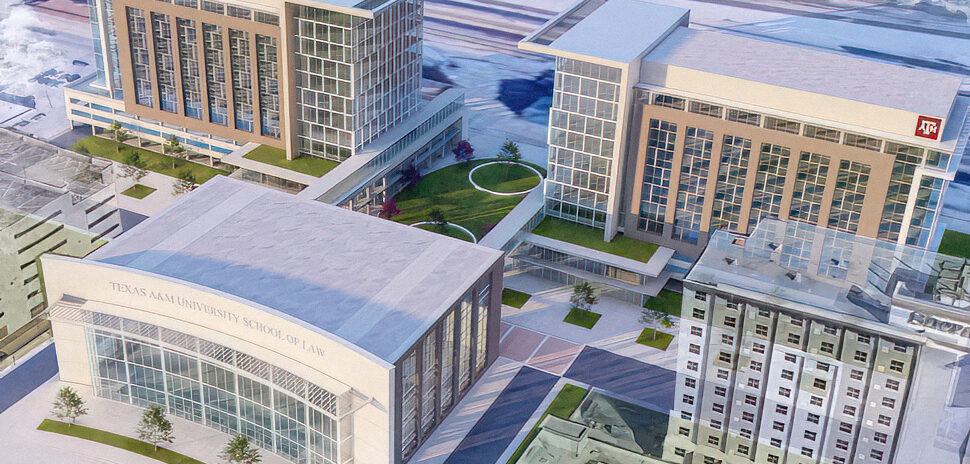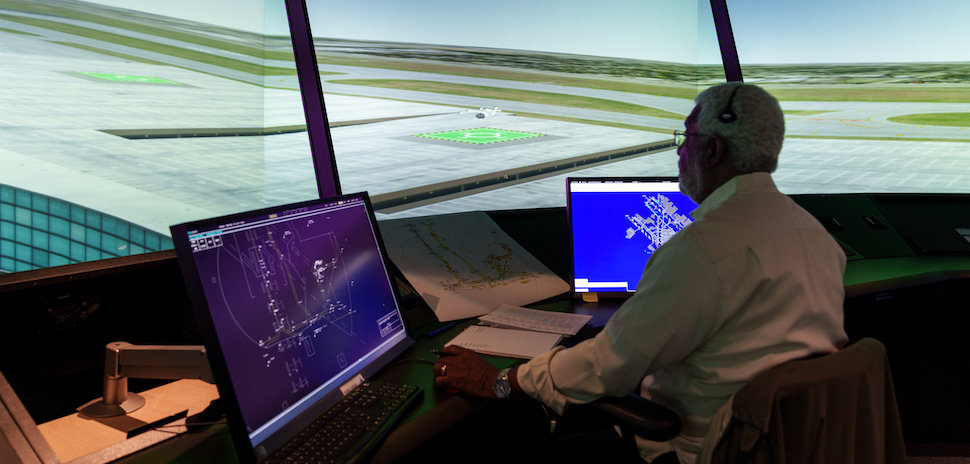Israel-based AIR is known for its AIR ONE “flying sportscar,” which seats two, tops out at 155 MPH, and has a range of 65 to 100 miles on a single charge. The company came out of stealth in 2021 and gave the AIR ONE its first “hover test flight” two years ago in Israel. That gave people sitting in traffic jams worldwide yet another glimmer of hope that flying cars could one day free us from bumper-to-bumper backups.
Since that first hover flight, the AIR ONE has been “pushing the envelope of electric aviation” with test flights over all kinds of terrain.
But this week, AIR announced that it’s entering a whole new market for its innovative eVTOL tech: It’s expanding into logistics with its new, unmanned AIR ONE Cargo eVTOL. And it’s performing certification-oriented tasks for the launch out of AIR’s “engineering microsite” in Fort Worth.
Fort Worth location is focused on ‘aircraft certification’

Matt Smith, AIR’s director of certification and airworthiness, heads up AIR’s Fort Worth operations. Behind him is the manned version of the AIR ONE. [Photo: AIR]
“AIR’s Fort Worth location is focused on aircraft certification, while flight testing takes place at another site on the east coast,” an AIR spokesperson told Dallas Innovates. “We will update on our progress of flight testing in the near future.”
Matt Smith, AIR’s director of certification & airworthiness, heads up the company’s Fort Worth operations. Prior to joining AIR, Smith managed the certification of “multiple Department of Defense aircraft,” directed the engineering department at Gulfstream Aerospace, and also served as the lead FAA Organizational Delegation Authorization administrator on the certification of numerous aircraft, AIR said.
Erez Tadmor is AIR’s head of U.S. operations.
First cargo aircraft already delivered
Over the last year—while maintaining its role “at the forefront of the high-volume general aviation market” with its flagship eVTOL aircraft AIR ONE—the company has been focused on getting into logistics as well. AIR said it has secured “multiple deals” to supply the unmanned version of AIR ONE for cargo purposes.
AIR says it closed out 2023 with over $1 million in revenue, with the additional purchase orders “significantly boosting” the company’s revenue projections for 2024 and 2025.
The company said it has already “successfully delivered” the first cargo aircraft, and is set to continue fulfilling the purchase orders for the remaining AIR ONE Cargo units “throughout 2024 and the first half of 2025.”
“Venturing into this new market with AIR ONE Cargo is a testament to our unwavering commitment to the integration of eVTOLs into all spheres of daily life, for a variety of use cases,” AIR Co-Founder and CEO Rani Plaut said in a statement. “We expanded our offerings in response to strong market demand, and the feedback we’ve already received affirms that AIR ONE’s robust capabilities and simple, cost-effective design make it an extremely agile platform, uniquely able to scale across different uses.”

AIR ONE eVTOL aircraft prototype [Photo: AIR]
Manned AIR ONE aims to let people ‘drive the sky’
AIR says it’s combining aerospace innovation with “the maturity of automotive technology and uncompromising safety standards powered by proprietary fly-tech.” Its goal: giving people the opportunity to easily “drive the sky.”
Founded by Chen Rosen, Netanel Goldberg, and Rani Plaut, AIR says the first-of-its-kind manned AIR ONE is designed for “personal use.” To help drive the project, AIR announced in February that it will be sourcing customized motors from Japan-based Nidec Motor Corporation, one of the world’s leading electric motor manufacturers.
The first batch of AIR ONEs will be released under the FAA’s MOSAIC program, the company said. MOSAIC stands for Modernization of Special Airworthiness Certification, a proposed rule introduced by the FAA in July 2023 with a goal of embracing technological advances in aircraft—and widening the scope of permitted operations.
AIR also has an active TC application with the FAA for the AIR ONE, and hopes to obtain the TC “when it becomes a viable option.” (A TC, or type certificate, is issued by the FAA to confirm an approved design or “type” of aircraft has been deemed airworthy.)
AIR ONE Cargo is operated from a ground station
You may have noticed in the image at the top of this article that the AIR ONE Cargo carries cargo, not a pilot. So how does it fly?
AIR said the cargo version of its AIR ONE “has an inherent and wide suite of automated functions. It is oversighted from a ground station which can control multiple units.”
The AIR Cargo is currently operated under experimental certification, AIR added, and is expected to be certified “in the relevant territories in cooperation with the customers and partners who purchased the first batch.”
AIR says its AIR ONE Cargo can take off and land vertically while carrying a 550-pound payload, noting that the all-electric aircraft “offers a practical long range on a single charge at speeds comparable to the manned passenger variant of AIR ONE.”
Part of the USAF’s AFWERX Agility Prime program
In December, AIR announced its participation in the U.S. Air Force’s AFWERX Agility Prime program to drive flight testing and additional R&D efforts in the U.S.
The company says it’s continuing to amass “significant flight test hours” with its full-scale prototypes after “successfully proving all phases of flight.” With 1,170 AIR ONE vehicles for personal use already reserved via preorder—and a waiting list of would-be “flying sportscar” pilots lined up behind that—AIR said it aims to deliver “the first batch of aircraft” to consumers once it secures aircraft certification from the FAA.
To see a video of the AIR ONE taking flight, check out AIR’s webite.
![]()
Get on the list.
Dallas Innovates, every day.
Sign up to keep your eye on what’s new and next in Dallas-Fort Worth, every day.




























